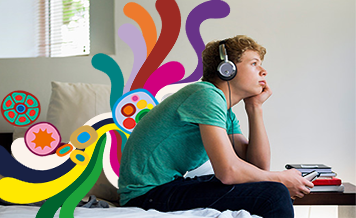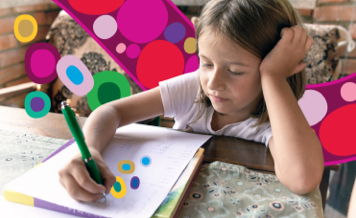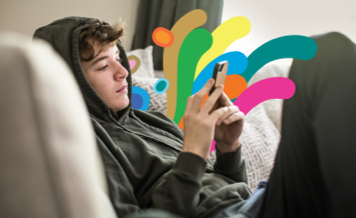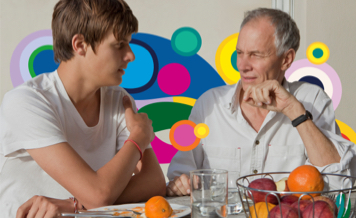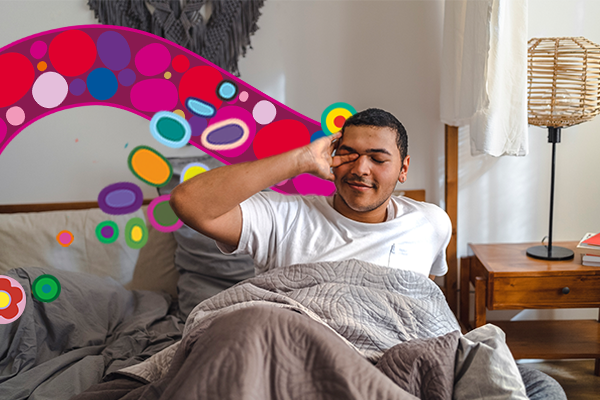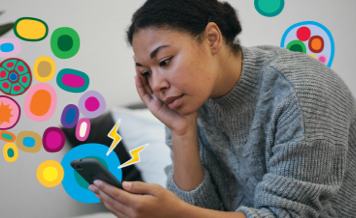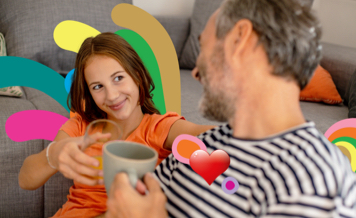How to recognise postnatal depression
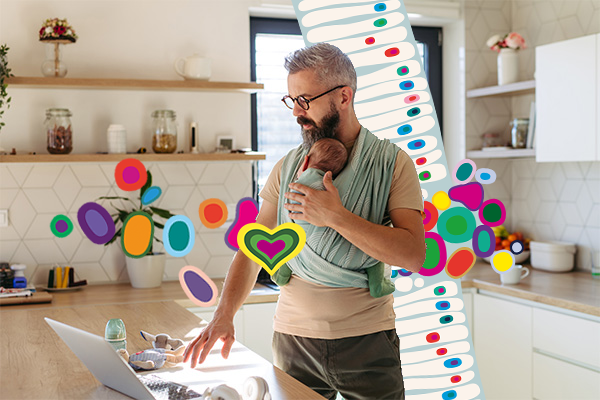
Jump to section: | Symptoms | Postnatal depression in women | Postnatal depression in men | Treatment |
Becoming a parent is a life-changing experience, one that can bring up powerful emotions. While many of these emotions are positive, it’s not unusual for new mums and dads to also experience negative or unexpected feelings such as inadequacy, sadness and guilt.
For some new parents, however, the emotional toll of childbirth can be more serious. One in five new mums and 1 in 10 new dads will experience postnatal depression (sometimes called postpartum depression). Postnatal depression is a more severe or prolonged episode of emotional changes that can include strong depressive mood swings, anxiety, social withdrawal, irritability and loss of enjoyment in usual activities.
It’s important to take postnatal depression seriously and know that support is available.
Symptoms of postnatal depression
Postnatal depression can start slowly or suddenly, and can range from a mild feeling of sadness to severe depression.
Common symptoms of postnatal depression can include:
low self-esteem and confidence
feelings of inadequacy and guilt
loss of enjoyment of usual activities
loss of appetite and weight
sleeping difficulties
irritability
tearfulness
Feeling unable to cope
suicidal thoughts
panic attacks
loss of libido
fears for baby’s or partner’s safety or wellbeing.
It can be hard to tell the difference between exhaustion and depression, but if you or someone you care about has been experiencing any of these symptoms for two weeks or more, speak to your doctor for support.
Postnatal depression in women
Up to 80% of new mothers will experience ‘baby blues’ in the first couple of weeks after the birth of a new child. Luckily, these feelings usually pass on their own within a day or two.
Postnatal depression is more than this. It’s most common after a woman’s first pregnancy, and usually develops in the first few weeks or months after the birth. Women are more at risk of developing postnatal depression if they’ve suffered from depression before, if they experienced a difficult birth, or if they have a lack of support around them when the baby arrives. But there are other factors, such as a lack of sleep, being overwhelmed, or being stressed by other events in your life.
If you’re at risk, mention it to your family as soon as possible, as well as your doctor or midwife, so you’ve got a team of people looking out for you. Being prepared means you or your loved ones will be quicker to recognise it and seek support if it does happen.
Can men get postnatal depression?
It’s a misconception that postnatal depression only affects women. One in ten men experience postnatal depression, usually between the first trimester and 12 months of their child’s birth.
Fathers might be at an increased risk of postnatal depression if they:
are a first-time parent
are older
don't have strong or many social connections
are in poor physical health
have pre-existing mental health challenges
have a poor relationship with the partner
While women experiencing postnatal depression tend to develop symptoms of sadness, men tend to become irritable and withdraw from those around them. Dads experiencing postnatal depression may therefore find it helpful to open up to friends and family about their experience. If symptoms continue or get worse, speak to your doctor for support.
Treating postnatal depression
Postnatal depression is a real condition that requires support, and isn’t something you need to just ‘snap out of’ or ‘get over’. If you’ve been feeling this way for two weeks or more, make sure you visit your doctor to talk about what you are experiencing. Your doctor will work with you to come up with a treatment plan that might include:
counselling or psychological treatment
support groups
sleep management
diet, exercise and self-care
antidepressant medication

24/7 Medibank Mental Health Support
Medibank health insurance members can chat to a mental health professional about how they feel and ask questions about a range of mental health concerns for themselves or a loved one and get guidance on what they can do next. Chat online or call 1800 644 325 anytime of the day or night, 7 days a week at no extra cost.~
How long does postnatal depression last?
Left untreated, postnatal depression can last for several months or even years. That’s why it’s so important to know the signs and to seek support immediately.
Remember that everyone’s experience of postnatal depression is different, but recognising the symptoms and deciding to seek help are important first steps in your recovery.
How to support someone experiencing depression
If someone you care about is experiencing depression, let them know you’re there. Listen without judgment and encourage them to get support from a doctor or mental health professional. Depression can make daily tasks feel overwhelming, so small acts — like checking in or helping with practical things — can really help. Learn about depression to better understand what they’re facing. And don’t forget your own wellbeing — supporting someone else is easier when you’re also looking after yourself.
Where to get help
If your life or someone else’s is in danger, call 000 immediately.
If you’re in distress and need help, call Lifeline on 13 11 14 for 24/7 crisis support.
For non-emergency support, your GP or regular health practitioner is often the best place to start. They will be able to assess your individual situation and recommend the best next steps for your recovery.
Medibank health insurance members can chat to a mental health professional about how they feel and ask questions about a range of mental health concerns for themselves or a loved one and get guidance on what they can do next. Chat online or call 1800 644 325 anytime of the day or night, 7 days a week at no extra cost~.
Remember that help is always available, no matter the situation.
How can we help?
I want to know how my cover supports mental health
I need help and want to talk
Related articles
Things you need to know
~Some referred services may involve out of pocket costs and waiting periods may apply.
While we hope you find this information helpful, please note that it is general in nature. It is not health advice, and is not tailored to meet your individual health needs. You should always consult a trusted health professional before making decisions about your health care. While we have prepared the information carefully, we can’t guarantee that it is accurate, complete or up-to-date. And while we may mention goods or services provided by others, we aren’t specifically endorsing them and can’t accept responsibility for them. For these reasons we are unable to accept responsibility for any loss that may be sustained from acting on this information (subject to applicable consumer guarantees).











